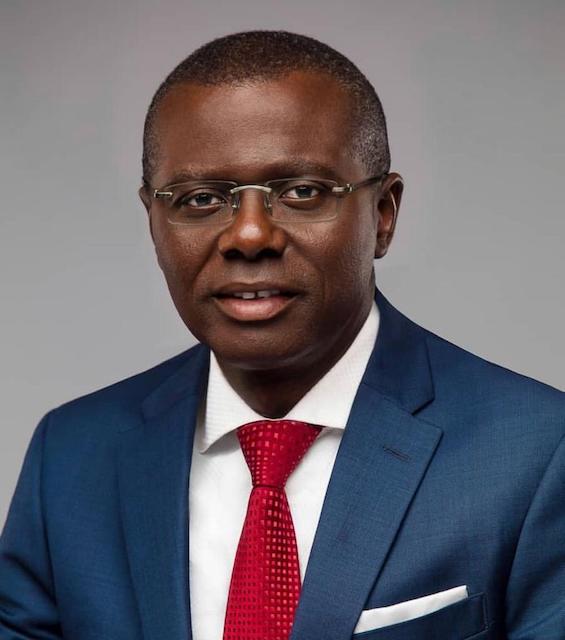Gov. Babajide Sanwo-Olu of Lagos State has called for stronger collaboration among African nations to combat human trafficking, ritual abuse and exploitation.
Sanwo-Olu made the call at the opening of the First Annual Africa Colloquium Against Human Trafficking, in partnership with Pepperdine University, California, United States of America, on Thursday in Lagos.
The governor described the crimes as an affront to humanity.
The News Agency of Nigeria (NAN) reports that the colloquium with the theme; “A United Front Against Ritual Abuse and Sacrifice,” brought together stakeholders from government institutions, law enforcement agencies, civil society, and international partners.
The governor was represented at the event by the Secretary to the State Government, Mrs Abimbola Salu-Hundeyin.
Sanwo-Olu, in his address, said human trafficking remained a grave reality affecting millions across Africa, particularly women and children, through forced labour, sexual exploitation, and ritual killings.
“Behind every statistic is a face, a name, and a story of pain that must never be ignored,” he said.
The governor said the battle against trafficking and ritual abuse could only be won through a united effort across borders and institutions, while urging governments, non-governmental organisations, and communities to strengthen cooperation and public awareness.
According to him, Lagos State has already taken decisive steps through its Task Force Against Human Trafficking, in collaboration with the National Agency for the Prohibition of Trafficking in Persons (NAPTIP)and international bodies.
This, he said, was to strengthen prosecution, rehabilitate survivors, and raise awareness.
Sanwo-Olu also cautioned against the myths linking power or success to ritual killings, describing them as dangerous beliefs that must be replaced with knowledge and empathy.
He assured survivors of the continued support by the state pledging improved care, faster prosecutions, and enhanced cross-border investigations.
“This colloquium marks the day we move from words to work.
“Together, we will protect our people, punish perpetrators and restore dignity to those harmed,” he said.
The governor also described the gathering as a moral awakening for Africa, in which the continent must stand firm in declaring that “our people are not for sale, our children are not sacrifices, and our future will never be built on fear or blood.”
The Attorney-General of the Federation and Minister of Justice, Mr Lateef Fagbemi (SAN), also reaffirmed the Federal Government’s commitment to ending human trafficking, ritual abuse, and related crimes across Africa.
Fagbemi, who was represented by Mrs Ezinne Nwokoro, a staff in the ministry, commended the organisers for providing a vital platform to address the complex realities of human trafficking and ritual abuse.
He, however, described such crimes as a grave affront to humanity and a violation of international human rights.
“This is not just another event, it is a necessary gathering for those of us working in different capacities to confront the painful reality of trafficking, ritual abuse, and human sacrifice in Africa.
“If traffickers can collaborate across borders, then so must we.
“We need stronger regional partnerships, survivor-led initiatives and a justice system that protects rather than traumatised victims.
“The office of the AGF has prioritised the fight against human trafficking through legislative reforms, enhanced cooperation with NAPTIP, and strengthened international collaboration.
“Let this not just be another conference but a platform for meaningful change guided by the voices and experiences of survivors,” he said.
Fagbemi also urged the participants to use the colloquium as a call to action.
Prof. Cameron Mc Collum, the Director, Sudreau Global Justice Institute, Pepperdine University, California, U.S., said the institution would continue to work with African nations to strengthen justice systems and combat ritual abuse and human trafficking.
Mc Collum said the institution had partnered with African countries for over 20 years to promote access to justice and criminal justice reform.
According to him, the university began its journey in Africa through a partnership with Uganda, where it helped establish a fast-track juvenile justice system and later expanded into broader justice initiatives, including plea bargaining and anti-trafficking interventions.
“From Uganda, our work has grown and today we collaborate with nearly 20 African countries on justice and anti-trafficking projects.
“Nigeria is a pivotal location for driving continental change and this colloquium was designed not just for discussion but for developing actionable solutions.
“Our goal is to move beyond talk to implementation, see justice systems that protect the vulnerable and hold offenders accountable,” he said.
Mc Collum added that the annual event would track progress and support legislative and institutional reforms across Africa



